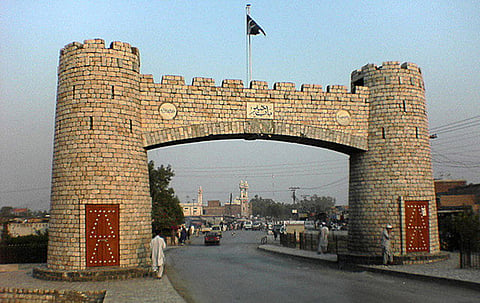Pakistan’s inner contradictions
As long as the state apparatus remains weak, its ability to defend key national interests will remain in question

United States President Donald Trump’s decision to intensify pressure on Pakistan just in the past week has prompted many to compare that moment with another historical event — the hours after the New York terrorist attacks of September 11, 2001 — commonly referred to as 9/11.
Within hours of that momentous event, former US president George W. Bush gave Pakistan’s former president Pervez Musharraf, a tough choice. “You are either with us or against us” was the catch-line that immediately forced Pakistan’s ruling establishment to cut its ties with the Taliban regime in Kabul and join what has become Washington’s longest running war in US history.
Today, 16 years later, after clearly failing to win the Afghan war, the Trump administration has placed Pakistan on notice. The US president wants Pakistan to either end the use of its territory by militants who attack US and Afghan forces in Afghanistan, or face the still undefined consequences.
Though an unusual notice from Washington has come, the circumstances are just not comparable to those that followed the 9/11 attacks. Unlike that event 16 years ago, which caused numerous innocent civilian casualties on America’s turf, today’s battlefield is neither on US soil nor necessarily one that targets civilians exclusively.
And the bottom line of Washington’s need to keep Islamabad on its side for an end to the Afghan war restricts Washington’s ability to expand the war to Pakistan. But not to be forgotten are indeed the realities of the battlefield itself. At one time, the number of US troops combined with troops from other countries exceeded 150,000 personnel. The continued war in Afghanistan begs to raise the question that if indeed ending the conflict requires a comprehensive end to the gaps inside Afghanistan, notably the absence of a corruption free and efficient ruling structure?
Though Pakistan may be a part of the problem surrounding Afghanistan, it is indeed not the only problem. And for Pakistan too, while the notice from Trump may be one-sided, Islamabad cannot pretend that it doesn’t have to take certain very specific steps to cleanse its soil of militants.
At the outset, three important steps deserve particular mention.
First, Pakistan’s internal security apparatus is still surrounded by gaps of the kind that deserve immediate attention. Without tackling the current challenges — ranging from freeing the policing structure from political influence to improving its efficiency — the ability of Pakistan’s police to take on the challenge will not improve. Second, targeting of militant factions across the country needs to be given a much higher priority than before. Unfortunately, different political factions have taken it upon themselves to divert attention from areas that do not suit them. The Punjab province deserves special attention. While deposed former prime minister Nawaz Sharif saw Pakistan Army step up pressure on militants across the northern Khyber Pakhtunkhwa province, he did little to encourage a similar action against militants in his native Punjab province. Such partiality clearly has to end. A clean-up drive cannot succeed unless its undertaken with honesty and across the board — wherever the problem lies.
And finally, Pakistan’s economic framework requires a series of tough actions on a number of fronts. The malice of large-scale tax evasion essentially adds fuel to the fire of a black economy, which has fuelled a number of elements that are antagonistic to the Pakistani state. This also means that the state’s ability to intervene in favour of its people wherever needed the most has been badly compromised over a period of time. As long as the Pakistani state remains weak, its ability to defend key national interests will remain in question.
Other elements related to the economic framework are essentially matters to do with economic priorities of the ruling structure. Just in the past week, a report revealed that almost 50 million Pakistanis were exposed to arsenic through their water supplies. This speaks volumes about the misplaced priorities. Former premier Sharif passionately oversaw a determined push to create infrastructure such as fancy highways and air-conditioned urban bus projects. Such projects were favoured over suggestions to provide clean water and better health and sanitation facilities. And little attention has been paid towards addressing Pakistan’s dilapidated educational framework.
Today, a historic opportunity has come about with China’s promise of investing more than $50 billion (Dh183.9 billion) in infrastructure projects in Pakistan. Known as the China-Pakistan Economic Corridor (CPEC), the initiative seeks to build projects to end Pakistan’s energy shortages and create a framework for the future growth of industries and agriculture. However, the promised investments will saddle Pakistan with a huge foreign debt. It is therefore vital that the country urgently begins to reform its economy by drastically improving its tax collection network on the ground for repaying sovereign loans — including those from China.
In the meantime, China’s diplomatic support to Pakistan in the wake of Trump’s pronouncement has once again proven Beijing to be a time-tested friend of Islamabad. In sharp contrast, the historic ups and downs in relations between Islamabad and Washington have underlined a tragic reality. No matter what future course Islamabad chalks out, Washington will just not be the kind of trusted partner that Beijing is.
Farhan Bokhari is a Pakistan-based commentator who writes on political and economic matters.


